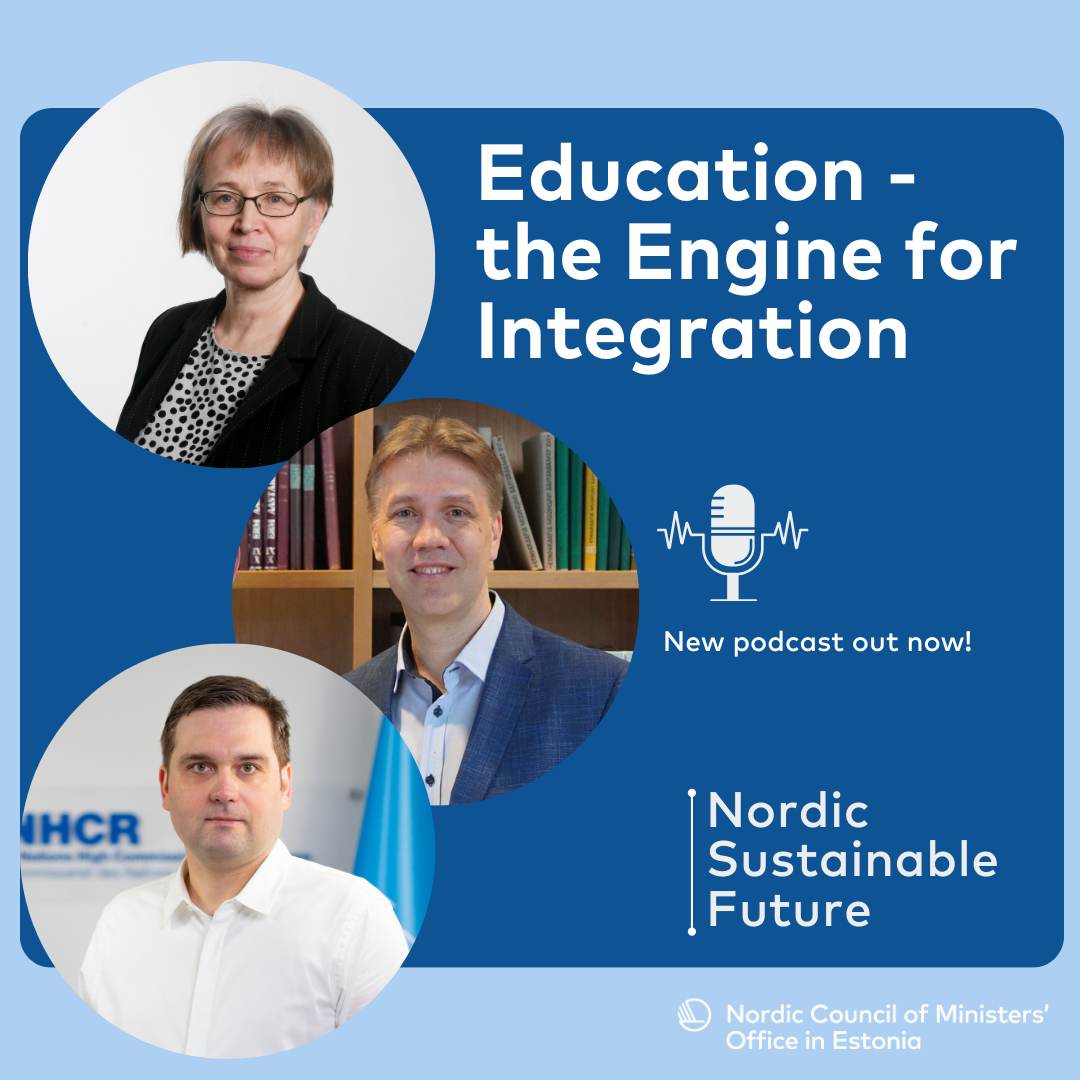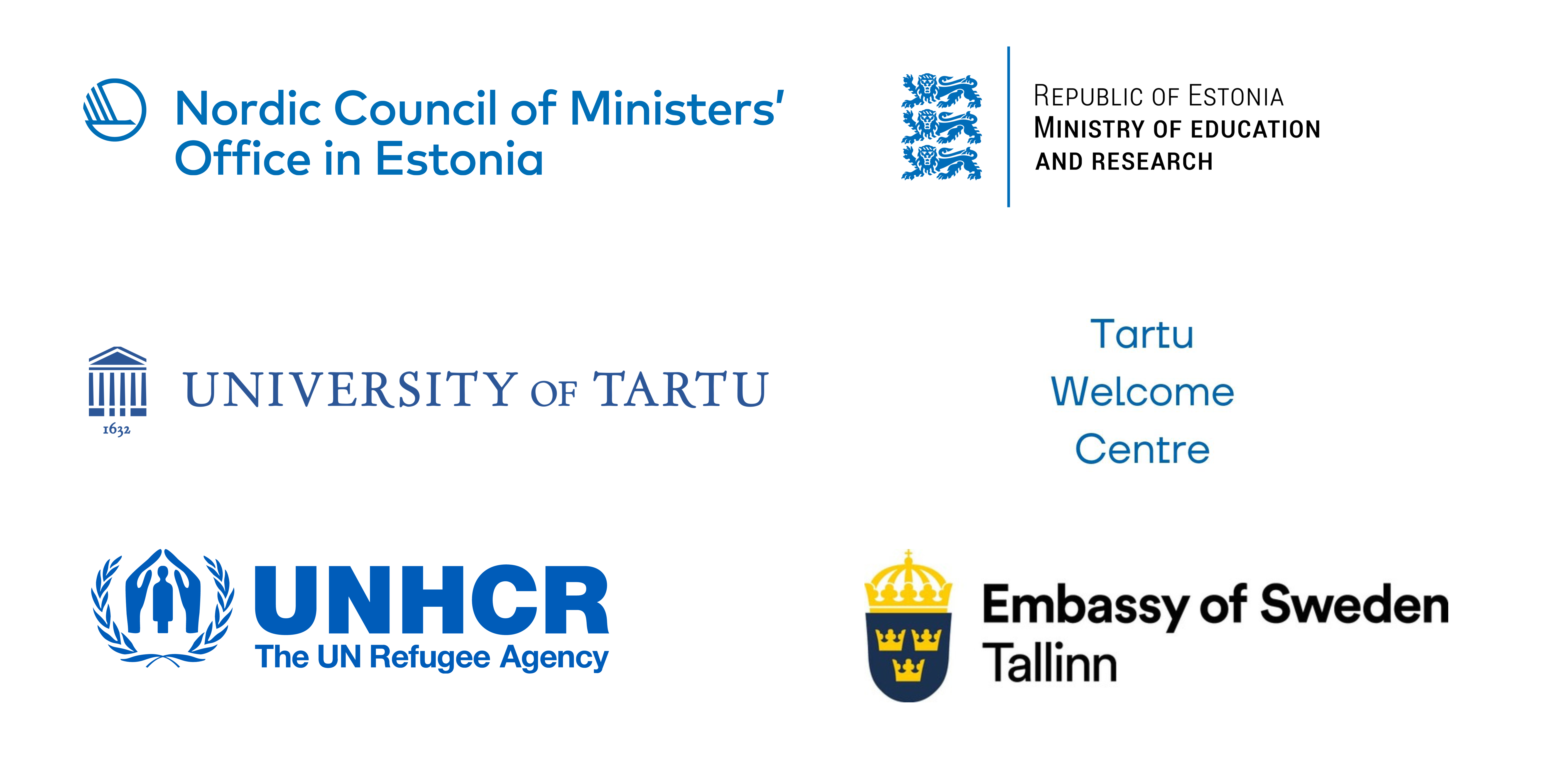24.10.23
Conference “Integration through education and engagement of local actors” Finished
Nordic Council of Ministers’ Offices in Estonia in collaboration with the Estonian Ministry of Education and Research, the University of Tartu, Tartu Welcome Centre, the UNHCR Representation for the Nordic and Baltic Countries and the Swedish Embassy in Tallinn arranged an international conference “Integration through education and engagement of local actors” 24th of October 2023 at the KUMU Art Museum of Estonia in Tallinn.
The conference focused on the role of education in integration processes on local level and sharing experiences and practices of integration of Ukrainian refugees in the Nordic-Baltic Region. Representatives of academia, local governments and state organizations in the Nordic-Baltic region presented the knowledge and basic data on immigration and integration in their home countries and organizations, followed by joint discussions.
The presentations of the conference:
Keynote 1: Estonian School Reform; Kristina Kallas, Minister of Education and Research of Estonia
The conference was recorded. Please find the recording below:
See the photos from the conference:
https://www.norden.ee/galeriid/forin-2023/
The podcast “Education – the Engine for Integration”
 The experience of the Nordic countries confirms that the free movement of people is a key prerequisite to development. It has provided people with better opportunities in terms of living, working and studying in neighbouring Nordic countries. At the same time the current challenges of today’s world – wars, conflicts, diseases, climate change and others – have brought forward possible problems associated with migration.
The experience of the Nordic countries confirms that the free movement of people is a key prerequisite to development. It has provided people with better opportunities in terms of living, working and studying in neighbouring Nordic countries. At the same time the current challenges of today’s world – wars, conflicts, diseases, climate change and others – have brought forward possible problems associated with migration.
Let’s discuss how has war in Ukraine changed the situation in migration and integration of refugees, what is the role of education in integrating newcomers to the receiving societies and which experiences have the Nordic and Baltic countries obtained in receiving and integrating refugees in our region. The participants of the podcast are Professor Tiit Tammaru from the University of Tartu, member of Estonian Academy of Sciences; Tuire Palonen, Research Fellow at the University of Turku; and Kari Käsper, Associate Legal Officer at UNHCR.
The podcast was an introduction to the Nordic-Baltic migration conference arranged at the KUMU Art Museum in Tallinn on 24 October 2023.
The conference was be arranged in the framework of the Nordic-Baltic project FOR-IN launched for the years 2022-2024. The project aims at fostering refugee and immigrant integration at the local level by creating country-specific intersectional cooperation models and regional networks of practitioners in the Nordic-Baltic Region. Local level integration of refugees and immigrants is a priority for countries in the Baltic-Nordic Region and far beyond. The experiences of Nordic and Baltic countries are of high value for receiving the refugees and helping them to integrate to the country of arrival. The project will help the Nordic and Baltic countries to learn from each other and to implement this knowledge on integration into everyday practice on local level.
The project is prepared and launched in collaboration between the Nordic Council of Ministers, UNHCR, Ministry of Culture of Estonia, Ministry of Education and Research of Estonia and many other partners.
